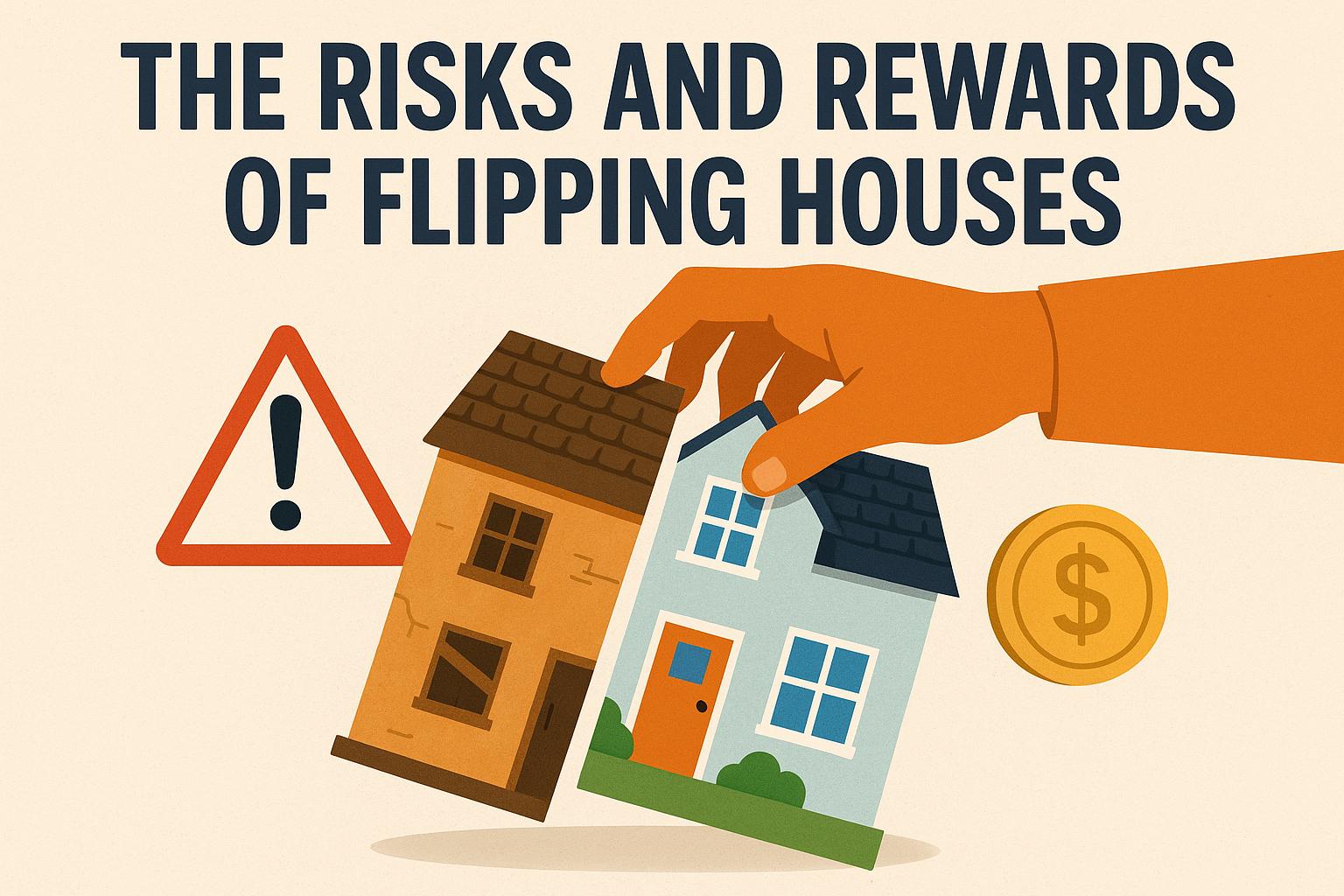
Flipping houses presents a compelling option for real estate investors looking to quickly turn a profit by purchasing, renovating, and selling properties. This strategy, while potentially lucrative, also involves several inherent risks that need careful consideration. By examining both the rewards and risks of house flipping, as well as essential considerations for prospective flippers, investors can gain a comprehensive understanding of what this real estate strategy entails.
House flipping offers several potential advantages that appeal to investors.
The allure of high returns is a central factor in the popularity of house flipping. Unlike traditional real estate investments, where profits are often gradual and long-term, flipping can provide substantial returns in a short period. The profitability in this strategy lies in acquiring properties at lower prices, executing cost-effective renovations, and then selling the property for a price significantly higher than the initial investment. Successful flippers are adept at identifying underpriced properties and making strategic improvements to maximize resale value.
Another attractive feature of house flipping is the potential for immediate cash flow following the sale of a renovated property. Unlike rental income, which typically accumulates over an extended period, flipping offers a lump sum payout that can be substantial. This enables investors to quickly reinvest profits into new opportunities, pay down debts, or fund other business ventures. This immediate financial return is one of the distinguishing characteristics of house flipping, setting it apart from other real estate investment strategies.
For some investors, the personal satisfaction derived from transforming a neglected or distressed property into a habitable and desirable home is significant. This process not only involves addressing structural and aesthetic issues but also enhancing the overall functionality and comfort of the property. The tangible result of seeing a deteriorated property rejuvenated can provide a sense of accomplishment and fulfillment. This intrinsic reward can be as motivating as financial profit for certain individuals involved in house flipping.
While the potential rewards are enticing, house flipping is not without its risks, necessitating careful consideration and planning.
One of the principal risks of house flipping is market volatility. Real estate markets are subject to fluctuations, influenced by economic conditions, interest rates, and local market trends. An investor’s ability to profit from a flip is heavily dependent on timing the market correctly. Changes in property values, interest rates, or the broader economy can adversely affect the ability to sell a property at a desired price, potentially leading to losses. Investors need to stay informed and adaptable to market changes.
A frequent pitfall for inexperienced flippers is underestimating the costs involved in renovations and the holding phase of the flip. The failure to accurately estimate expenses like structural repairs, permit fees, or prolonged property listings can significantly reduce profits or even result in a loss. A thorough understanding of construction costs and effective budgeting are indispensable skills for investors. Planning for contingencies can help mitigate the impact of unforeseen expenses.
Flipping houses often requires substantial time commitment and involvement in various phases of the process. The journey from identifying a suitable property to managing renovation projects and eventually selling requires meticulous attention to detail. Investors must coordinate with contractors, navigate legal and regulatory requirements, and monitor market conditions continuously. These demands can turn house flipping into a full-time endeavor, especially for those who aim to execute multiple projects concurrently.
Alongside the potential for profit, there is a real risk of financial loss in house flipping. Investors may not always recoup their initial investments or achieve anticipated profits if market conditions change or if there are failures in execution strategies. Several factors, such as over-improvement of a property or failure to sell within a desired timeframe, can lead to financial setbacks. Having a robust exit strategy, which includes accurate market evaluation and pricing, is crucial in mitigating the risk of loss.
To minimize risks and maximize the chances of success, aspiring house flippers should consider various crucial factors before embarking on this venture.
Firstly, conducting thorough market research is vital. This involves analyzing local property values, economic trends, and buyer preferences to identify viable flipping opportunities. Understanding regional dynamics can influence property selection and pricing strategies.
Budgeting effectively and maintaining financial oversight are equally important. Knowing all potential costs involved and maintaining financial records helps in making informed decisions and aids in navigating unexpected changes or expenses.
Building a network of reliable contractors and suppliers also plays a key role in efficient project execution. Establishing these relationships can streamline renovations and help ensure projects are completed on time and within budget.
It is also recommended for new flippers to seek guidance from experienced individuals or professional real estate organizations. They can provide valuable insights and advice on navigating the complexities of real estate markets. Resources offered by organizations and online real estate communities, like those of National Association of Realtors and Real Estate Investing, can prove invaluable in offering guidance and market data.
In summary, house flipping can be highly profitable and rewarding for those with the right skill set and resources. However, it requires a comprehensive understanding of real estate markets, careful financial planning, and commitment. Individuals considering this path should align it with their financial goals, risk tolerance, and available time commitment to ensure a successful experience. Rational decision-making and strategic planning are integral components of achieving success in the competitive world of house flipping.
Comments are currently closed.